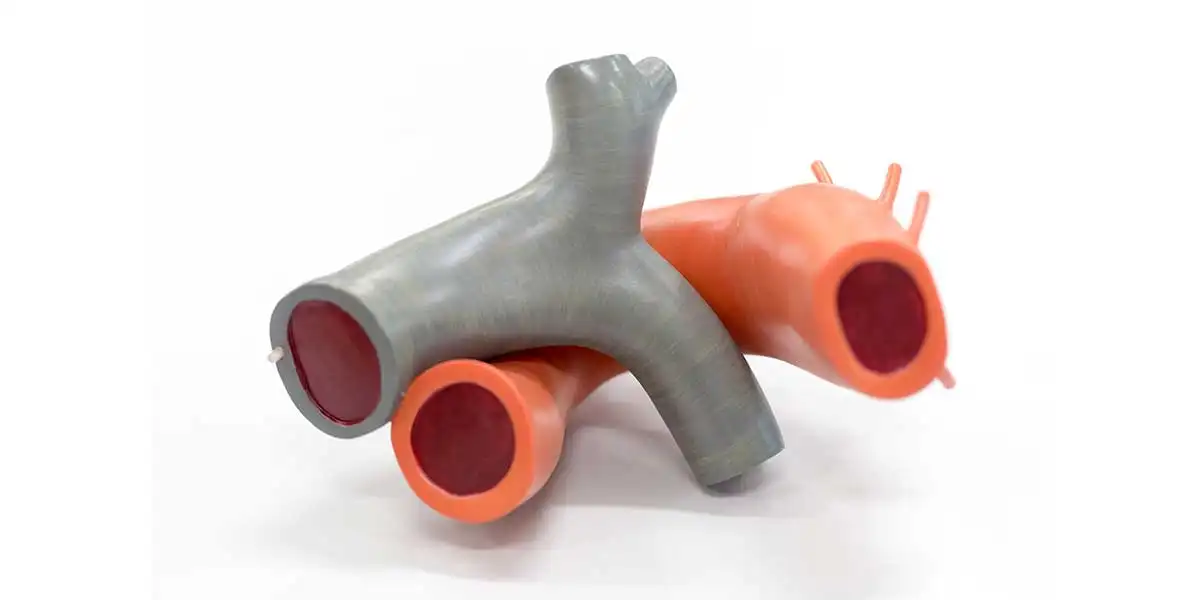
Jan 4, 2024
Blog Life Sciences Pioneering The Future: Artificial Blood Vessels Transforming the Global Market
In the rapidly evolving landscape of healthcare, the Global Market for Artificial Blood Vessels stands at the forefront of innovation, promising groundbreaking solutions to the challenges posed by cardiovascular diseases. As the prevalence of vascular disorders continues to rise globally, the demand for advanced therapeutic interventions has never been more pressing. Artificial blood vessels, meticulously engineered to replicate the intricacies of their natural counterparts, represent a paradigm shift in medical science. This introduction sets the stage for an exploration into the dynamic market forces, technological advancements, and transformative potential that characterize the global pursuit of improved cardiovascular care through the utilization of artificial blood vessels.
The base year considered for this market analysis is 2022, with a forecast period extending from 2023 to 2028. In 2022, the artificial blood vessels market was valued at $2.1 billion, and a promising projection anticipates a growth to $2.8 billion by 2028, reflecting a Compound Annual Growth Rate (CAGR) of 5.3% during the forecast period. The units are measured in millions of dollars. The market is segmented based on type and application, offering a nuanced understanding of its dynamics. Geographically, the analysis spans North America, Europe, Asia-Pacific, and the Rest of the World (RoW). Key market drivers fueling this growth include the persistent increase in cardiovascular diseases, a rising prevalence of peripheral artery disease and end-stage renal disease, the demographic shift towards a growing geriatric population, and evolving lifestyles. Additionally, strategic initiatives in research, development, and industry collaborations contribute significantly to the overall momentum of the artificial blood vessels market during this forecast period.
The increasing prevalence of cardiovascular diseases represents a growing global health concern. Influenced by factors such as sedentary lifestyles, poor dietary habits, and an aging population, cardiovascular diseases encompass a range of conditions affecting the heart and blood vessels. Addressing this rising trend necessitates comprehensive public health initiatives, lifestyle modifications, and innovative medical interventions to reduce the burden of cardiovascular diseases on individuals and healthcare systems worldwide.
The escalating prevalence of Peripheral Artery Disease (PAD) and End-Stage Renal Disease (ESRD) is a pressing health issue. Linked to aging, diabetes, and hypertension, PAD manifests as reduced blood flow in limbs, while ESRD signifies advanced kidney dysfunction. This dual rise underscores the imperative for heightened awareness, early detection, and targeted interventions to mitigate the impact of these conditions, ensuring better outcomes for affected individuals.
The concurrent trends of a growing geriatric population and evolving lifestyles are shaping the landscape of global health. Increased life expectancy and changing societal norms contribute to a larger proportion of elderly individuals. Simultaneously, modern lifestyles characterized by sedentary habits and dietary shifts impact health outcomes. Addressing the complex interplay between these factors is crucial for developing holistic approaches to healthcare, promoting healthy aging, and managing the associated challenges in healthcare systems worldwide.
Strategic initiatives encompass purposeful actions and plans undertaken by organizations to achieve specific goals and objectives. These initiatives are carefully designed and executed to align with the overall strategic vision of an entity, guiding its efforts toward success. Whether in business, government, or non-profit sectors, strategic initiatives serve as intentional steps taken to drive innovation, growth, efficiency, or other desired outcomes, shaping the organization's trajectory and ensuring adaptability in a dynamic environment.
The market of artificial blood vessels is estimated to be $2.1 billion in 2022 and is forecasted to grow at a CAGR of 5.3% to reach a value of $2.8 billion by 2028.
Specific rankings of companies in the global market for artificial blood vessels: might have changed. However, here are five companies that were prominent players in this field, along with brief descriptions of their contributions:
Artivion,Inc: is a medical technology company dedicated to advancing vascular health through innovative solutions. Specializing in the artificial blood vessels sector, focuses on cutting-edge research and development to provide state-of-the-art medical interventions for cardiovascular care.
Braun SE: is a global healthcare company with a significant presence in the artificial blood vessels market. Renowned for its expertise in medical solutions, it is a key player in developing and delivering advanced technologies, including those related to vascular health.
Becton, Dickinson, and Company: is a major player in the medical technology industry, contributing significantly to the artificial blood vessels market. Known for its commitment to healthcare innovation, the company specializes in a broad range of medical devices and solutions, including those related to vascular health.
Getinge: is a global medical technology company that plays a crucial role in the artificial blood vessels market. With a focus on precision and reliability, develops and delivers a diverse range of healthcare solutions, contributing to advancements in vascular care and medical interventions.
Humacyte : is a pioneering company in the field of regenerative medicine, specializing in bioengineered blood vessels. Focused on addressing critical medical need.
Each of the mentioned companies in the Global Market for Artificial Blood Vessels contributes uniquely to the field of vascular health through various products, technologies, and innovations.
The Global Market for Artificial Blood Vessels is positioned for significant growth with a projected CAGR of 5.3% from 2023 to 2028, reaching a forecasted size of $2.8 billion. The introduction highlights the market's importance in addressing cardiovascular diseases and the role of artificial blood vessels in reshaping healthcare. Key drivers, including the prevalence of cardiovascular diseases, strategic initiatives, and contributions from key companies like ARTIVION INC., B. BRAUN SE, and HUMACYTE, underscore the market's dynamic potential. With these factors at play, the market is poised to advance cardiovascular care, offering innovative solutions for the global healthcare landscape.
Consider becoming a member of the BCC Research library and gain access to our full catalog of market research reports in your industry. Not seeing what you are looking for? We offer custom solutions too, including our new product line: Custom Intelligence Services.
Contact us today to find out more.

Divya Dhamija is a Senior Executive of Marketing Operations at BCC Research, with a master’s degree in business. She specializes in optimizing marketing strategies and content creation and is dedicated to driving organizational growth through strategic marketing initiatives.
In today’s fast-paced biomedical world, researchers and pharmaceutical companies...

Radiopharmaceuticals represent a cutting-edge frontier in modern medicine, offer...

Implantable Remote Patient Monitoring (IRPM) devices are revolutionizing healthc...

We are your trusted research partner, providing actionable insights and custom consulting across life sciences, advanced materials, and technology. Allow BCC Research to nurture your smartest business decisions today, tomorrow, and beyond.
Contact UsBCC Research provides objective, unbiased measurement and assessment of market opportunities with detailed market research reports. Our experienced industry analysts assess growth opportunities, market sizing, technologies, applications, supply chains and companies with the singular goal of helping you make informed business decisions, free of noise and hype.